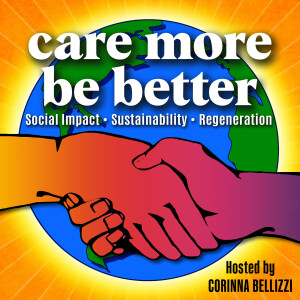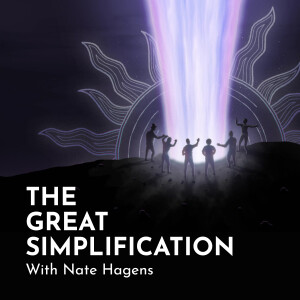

Episode List
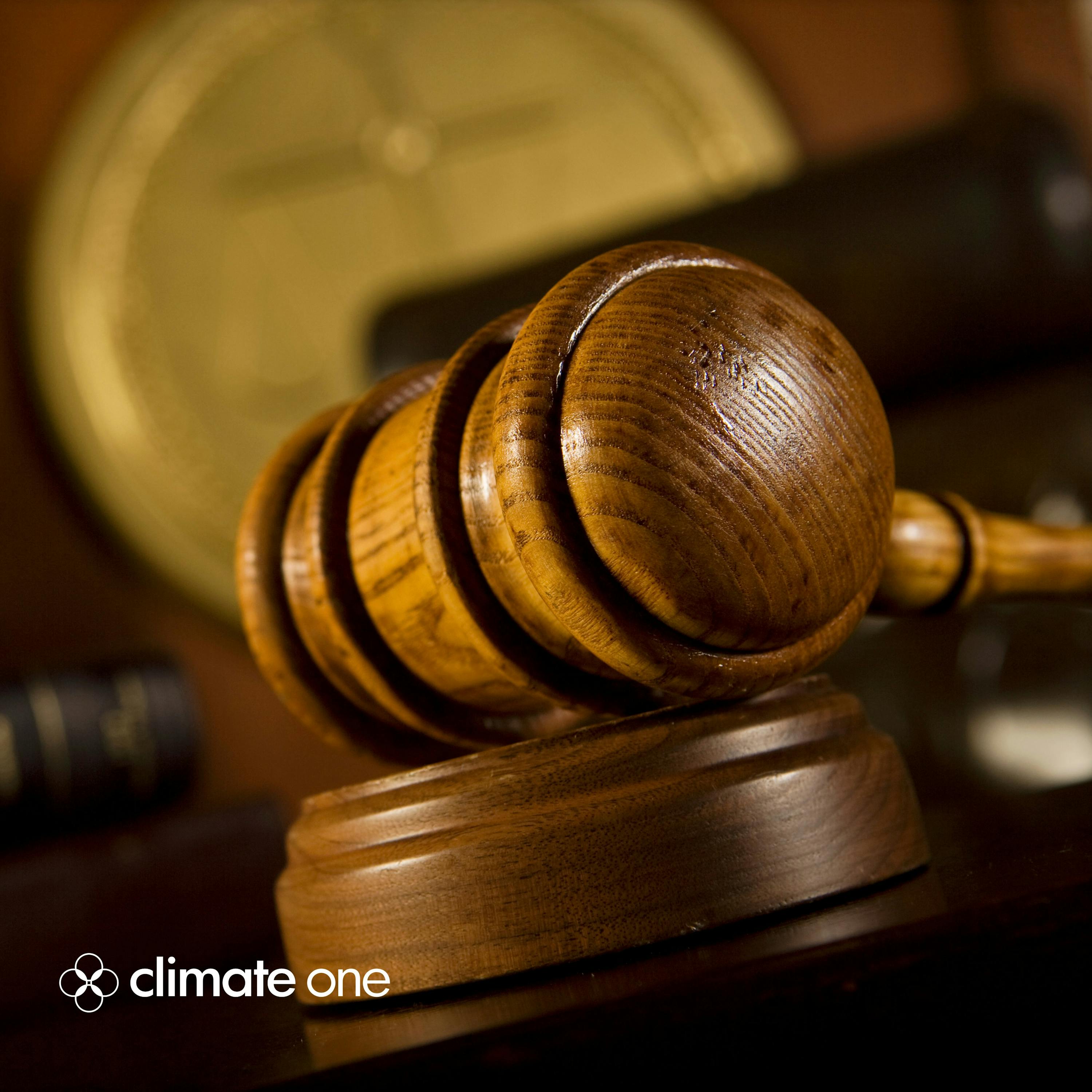
Young People Are Bringing Climate To Court. And Winning.
We’re all feeling the effects of the fossil-fueled climate crisis, but young people will not let this threat to their future go unchallenged. They’re taking it to the courts. In the last year, youth plaintiffs have had notable legal successes in Montana and Hawaiʻi, challenging that those states were violating their constitutional rights in continuing to burn fossil fuels. In Hawaiʻi, the ruling compels the state department of transportation to quickly move to a zero-emission system. But the biggest victory may have been outside of the U.S. The small island nation of Vanuatu led the charge to ask the International Court for Justice to grant a judgement on the legal obligation of countries to fight climate change. The judgment, released in late July, stated that countries do have a responsibility to address the climate crisis. Beyond their specific claims and remedies, these numerous cases ask: What do we owe our future generations, and how will we make good on those promises? Guests: Vishal Prasad, Director, Pacific Islands Students Fighting Climate Change Julia Olson, Co-Executive Director & Chief Legal Counsel, Our Children’s Trust Rylee Brooke Kamahele, Youth Plaintiff, Navahine v. Hawaiʻi Department of Transportation Support Climate One by going ad-free! By subscribing to Climate One on Patreon, you’ll receive exclusive access to all future episodes free of ads, opportunities to connect with fellow Climate One listeners, and access to the Climate One Discord. Sign up today. For show notes and related links, visit our website. Ad sales by Multitude. Contact them for ad inquiries at multitude.productions/ads Learn more about your ad choices. Visit megaphone.fm/adchoices
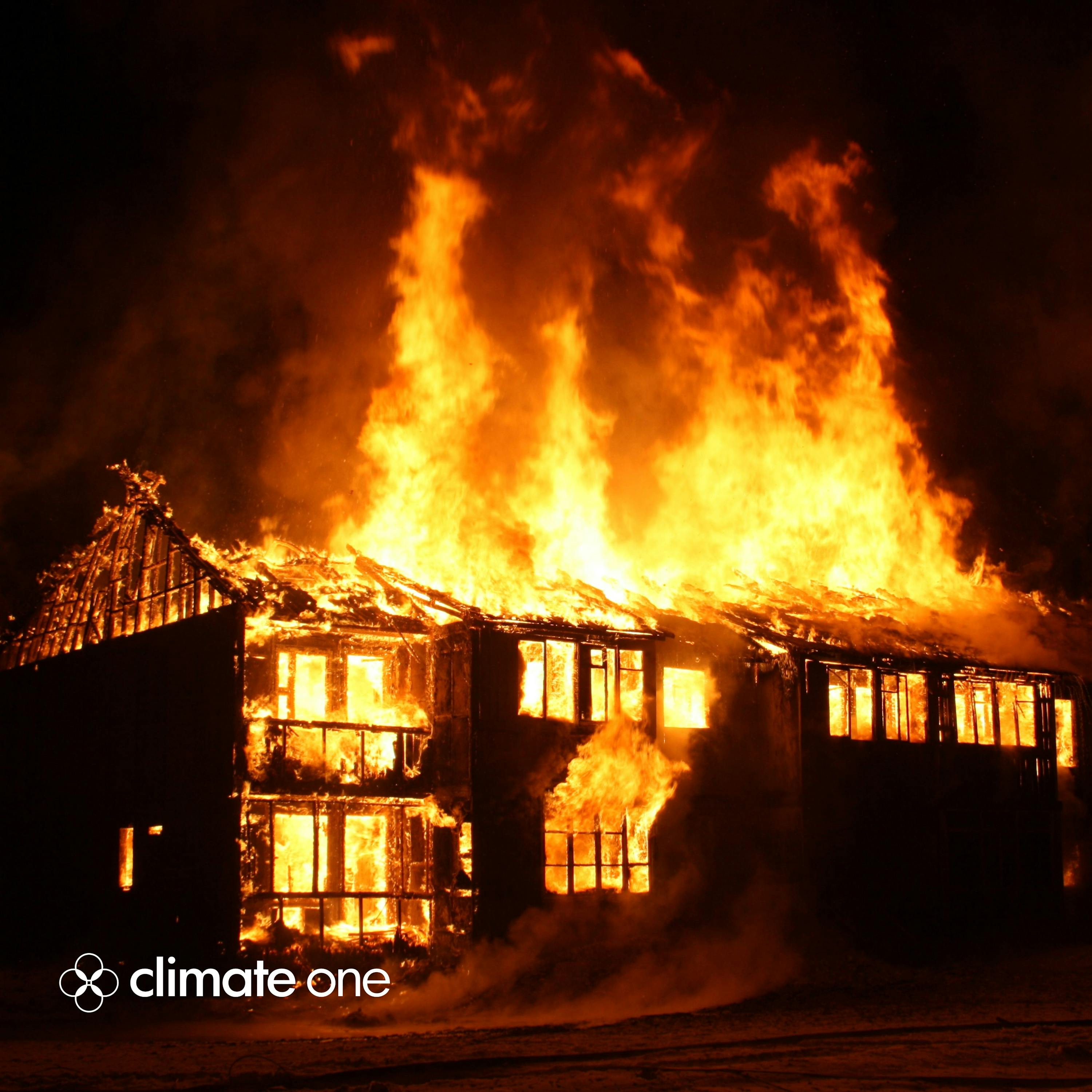
Scorching Premiums: Climate Costs Hit Insurance Market
Climate disruptions and growing risk are upending insurance markets, leading many insurers to abandon parts of the country all together. Due to fires, floods and other extreme events, more and more homeowners are facing rapidly rising premiums or being dropped from their insurance plans altogether. Increasing numbers of homeowners are taking refuge in the state insurance plans of last resort, straining the program resources. For homeowners, whose house is often their biggest financial asset, this creates a huge financial risk. So what should people do to evaluate climate risks and insurance availability during their housing search? And how can governments help insurers weather the increasing frequency of climate-induced disasters so they can continue to underwrite our homes? Guests: Rachel Cleetus, Senior Policy Director, Union of Concerned Scientists Claire O’Connor, Los Angeles real estate agent and homeowner Dave Jones, Director, Climate Risk Initiative at the Center for Law, Energy & the Environment, UC Berkeley This episode also includes a news feature produced by Camryn Sanchez of KJZZ in Phoenix. Support Climate One by going ad-free! By subscribing to Climate One on Patreon, you’ll receive exclusive access to all future episodes free of ads, opportunities to connect with fellow Climate One listeners, and access to the Climate One Discord. Sign up today. For show notes and related links, visit our website. Ad sales by Multitude. Contact them for ad inquiries at multitude.productions/ads Learn more about your ad choices. Visit megaphone.fm/adchoices
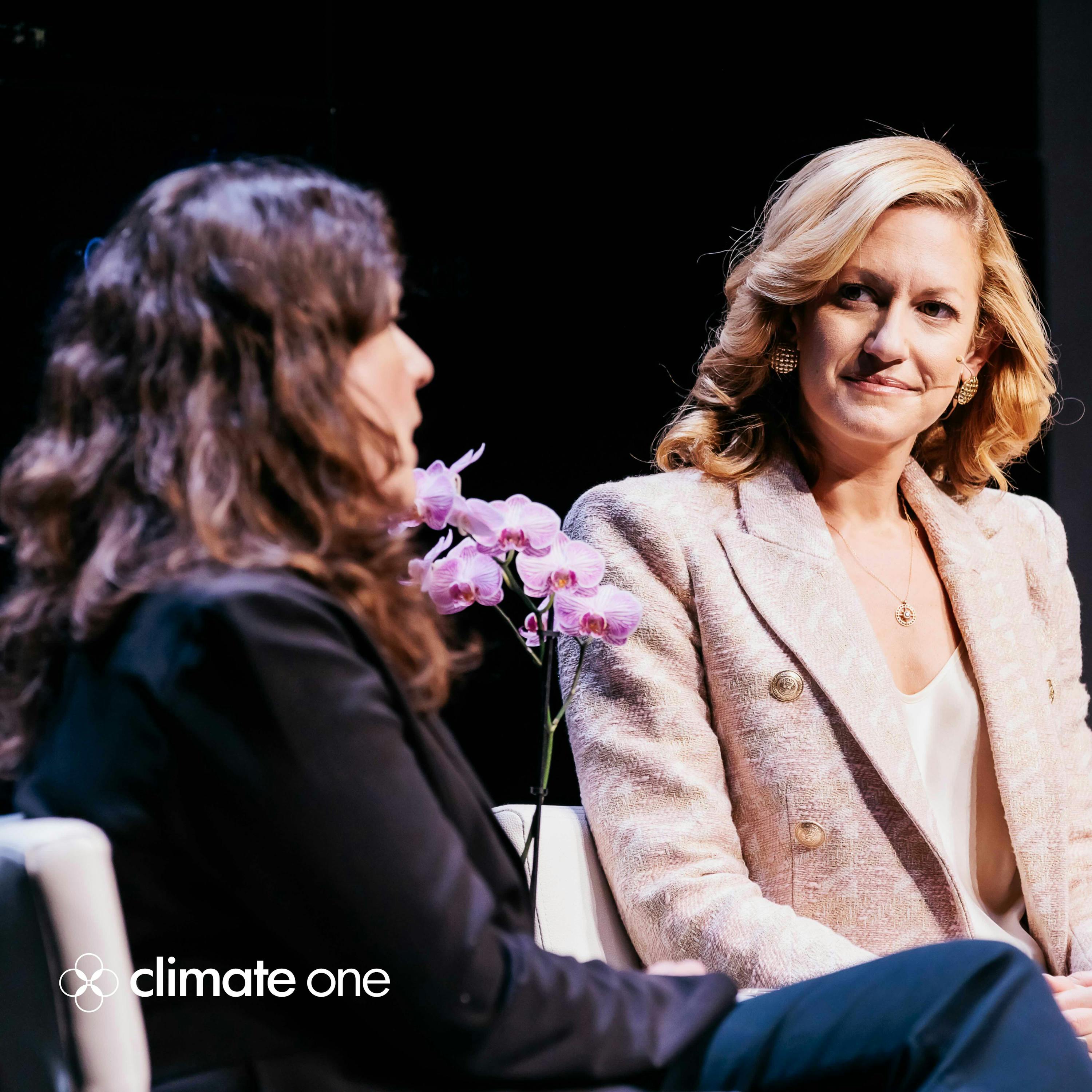
ENCORE: AI’s Power Demands: Do We Really Have the Energy for This?
In a previous Climate One episode, we discussed the good, the bad, and the ugly impacts of artificial intelligence. But AI isn’t going away. Humans rarely give up a nifty new tool unless something better comes along. AI’s share of energy consumption is enormous, and the Department of Energy estimates that data center energy demands will double or even triple in just the next three years. Demand on fresh water is at least as big and isn’t talked about nearly enough. So, what can we do to reduce AI’s impact? Plenty of researchers have ideas — from site selection to energy efficiency to using zero-carbon sources of energy. But what will incentivize the AI corporations to take any of those actions? This episode was supported by Climate One Steward Noel Perry and Next 10. This episode was recorded in March and originally aired April 4, 2025. Episode Guests: KeShaun Pearson, Executive Director, Memphis Community Against Pollution Kate Brandt, Chief Sustainability Officer, Google Irina Raicu, Director of the Internet Ethics Program at the Markkula Center for Applied Ethics, Santa Clara University On July 31, Climate One is hosting Premal Shah and Kinari Webb for a live episode recording! With years of experience navigating the global climate movement, the two are sure to offer unparalleled insights during their conversation with Co-Host Greg Dalton. Tickets for the show, which will be held at The Commonwealth Club in San Francisco, are available now through our website. Support Climate One by going ad-free! By subscribing to Climate One on Patreon, you’ll receive exclusive access to all future episodes free of ads, opportunities to connect with fellow Climate One listeners, and access to the Climate One Discord. Sign up today. For show notes and related links, visit our website. Ad sales by Multitude. Contact them for ad inquiries at multitude.productions/ads Learn more about your ad choices. Visit megaphone.fm/adchoices
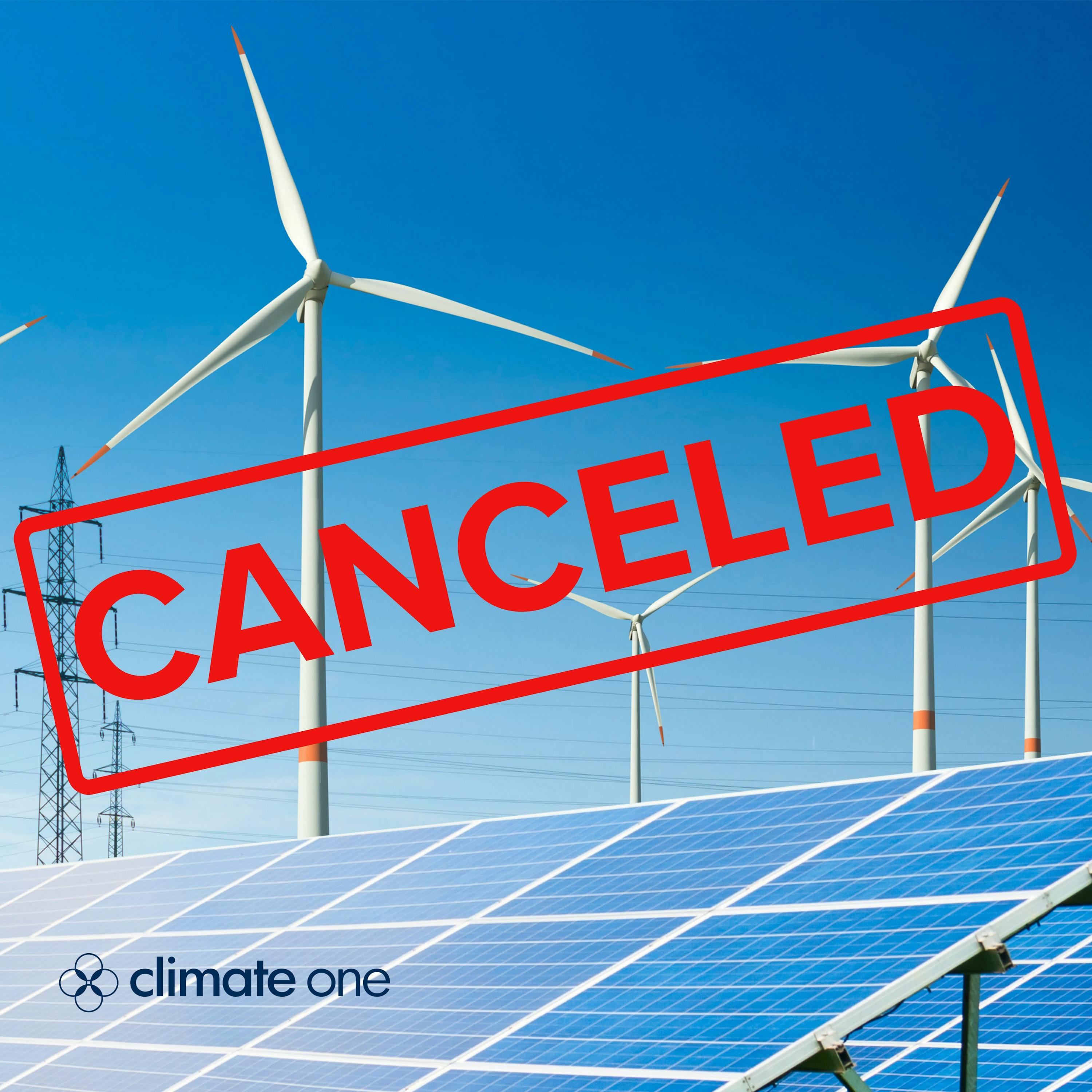
Trump’s Megabill Comes for the Clean Energy Transition
Three years ago, Congress passed President Biden’s Inflation Reduction Act, the largest investment in climate action in U.S. history. The IRA set in motion a sweeping set of investments in nearly every aspect of energy and climate, mostly in the form of subsidies and tax credits, to boost domestic production of electric vehicles, batteries and carbon-free energy. Those investments have flowed to every state, but the majority have landed in Republican-held districts. In spite of that, Congressional Republicans nearly unanimously passed President Trump’s “Big, Beautiful Bill” which the president signed on July 4. The megabill guts nearly all the program funds allocated under the IRA and slashes incentives and credits for solar, wind, energy efficiency and electric vehicles — precisely at a time when we need to dramatically scale up those sectors to address climate change. Why did Republicans let this bill move ahead? And how much will it exacerbate the climate crisis in the coming decades? Guests: Katherine Hamilton, Chair, 38 North Solutions Clayton Aldern, Senior Data Reporter, Grist Lisa Jacobson, President, Business Council for Sustainable Energy John Szoka, CEO, Conservative Energy Network On July 31, Climate One is hosting Premal Shah and Kinari Webb for a live episode recording! With years of experience navigating the global climate movement, the two are sure to offer unparalleled insights during their conversation with Co-Host Greg Dalton. Tickets for the show, which will be held at The Commonwealth Club in San Francisco, are available now through our website. Support Climate One by going ad-free! By subscribing to Climate One on Patreon, you’ll receive exclusive access to all future episodes free of ads, opportunities to connect with fellow Climate One listeners, and access to the Climate One Discord. Sign up today. For show notes and related links, visit our website. Ad sales by Multitude. Contact them for ad inquiries at multitude.productions/ads Learn more about your ad choices. Visit megaphone.fm/adchoices

Biomimicry & Green Burial: Living and Dying with Nature in Mind
Nature can feel distant from our everyday lives. Maybe it’s a place we visit on the weekends, a getaway from the hustle and bustle, something “out there,” just beyond the edges of our neighborhoods. But we are part of it, and as more and more people consider their impact on the Earth, sustainable practices are extending even to death, where green and natural burials are gaining popularity. Within the field of biomimicry, a design practice informed by what already exists in nature, innovators are exploring ways to sustain the ecosystems we’re surrounded by, rather than depleting them. Scientists have looked to butterfly wings to improve the efficiency of solar panels, and wetland plants to purify water in buildings. How can we build in a way that addresses climate concerns and has a softer impact on the environment in which it exists? Guests: Janine Benyus, Co-Founder, Biomimicry Institute Emily Miller, Licensed Funeral Director and Embalmer; Founder, Colorado Burial Preserve On July 31, Climate One is hosting Premal Shah and Kinari Webb for a live episode recording! With years of experience navigating the global climate movement, the two are sure to offer unparalleled insights during their conversation with Co-Host Greg Dalton. Tickets for the show, which will be held at The Commonwealth Club in San Francisco, are available now through our website. Support Climate One by going ad-free! By subscribing to Climate One on Patreon, you’ll receive exclusive access to all future episodes free of ads, opportunities to connect with fellow Climate One listeners, and access to the Climate One Discord. Sign up today. For show notes and related links, visit our website. Ad sales by Multitude. Contact them for ad inquiries at multitude.productions/ads Learn more about your ad choices. Visit megaphone.fm/adchoices
Create Your Podcast In Minutes
- Full-featured podcast site
- Unlimited storage and bandwidth
- Comprehensive podcast stats
- Distribute to Apple Podcasts, Spotify, and more
- Make money with your podcast
